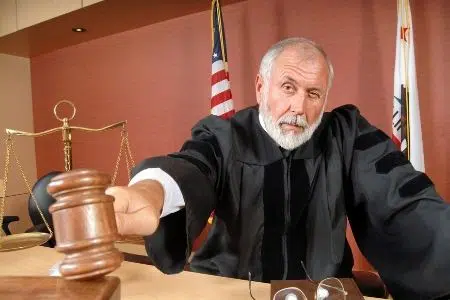
In most situations, when a person is arrested and charged with a misdemeanor or felony charge in Houston, they are required to post bail before they can be released from jail. For some, the amount of bail the court asks for can be too steep to pay. What is considered excessive bail in Texas? And what can defendants do in situations where the court asks for excessive bail as a condition for being released?
What Is Bail?
The Texas State Code of Criminal Procedure defines bail as “the security given by the accused that they will appear and answer before the proper court the accusation brought against them.” Bail is basically putting your money where your mouth is when you promise the state to appear as required to answer the charges against them. When a person who is out on bail breaks this promise, their bail is revoked and an arrest warrant is issued.
Although a defendant’s right to bail is protected by both the U.S. Constitution and the Texas State Constitution, there are certain circumstances in which bail can be denied. These circumstances can include:
- The defendant is arrested for another crime while already out on bail.
- They’ve committed a violent crime like murder or sexual assault and the court believes they are likely to do so again.
- They pose a flight risk — the court has reason to believe they won’t show up on their court date.
Texas state law says that a defendant must be allowed to post bail within 48 hours after being charged
What Is Excessive Bail?
In addition to protecting an individual’s right to post bail, the U.S. and Texas Constitutions also protect individuals from excessive bail. However, they don’t specify exactly what “excessive” is.
In Texas, the amount of bail is decided by the court, judge, magistrate, or officer taking the bail. However, Texas state law requires them to observe the following five rules when determining the amount of bail a defendant must pay:
- The bail shall be sufficiently high to give reasonable assurance that the undertaking will be complied with.
- The power to require bail is not to be so used as to make it an instrument of oppression.
- The nature of the offense and the circumstances under which it was committed are to be considered.
- The ability to make bail is to be regarded, and proof may be taken upon this point.
- The future safety of a victim of the alleged offense and the community shall be considered.
In addition, the state’s High Court has set forth three criteria for determining the appropriateness of a bail condition:
- It must be reasonable;
- It must be to secure the defendant’s presence at trial; and
- It must be related to the safety of the alleged victim or the community.
Legal Remedies for Excessive Bail
After you’ve been arrested on a misdemeanor or felony charge in Houston, it’s important to protect your rights. One of these rights is that you’re innocent until proven guilty. Bail is not meant to be used as a punishment against a defendant.
If you believe the amount of bail the Court has asked for is excessive, you can file an appeal with the court to request that the amount be lowered.
Get Help Fighting Against Excessive Bail
Lisa Shapiro Strauss is a Houston criminal defense attorney dedicated to protecting the rights of her clients. This includes defendants who have been charged excessive bail amounts. In many cases, Lisa’s representation has resulted in lowered bail amounts, reduced charges and fines, and even acquittal for her clients.
Lisa Shapiro Strauss represents clients in Bellaire, Houston, and all over the Harris County area. If you’ve been arrested and charged with a misdemeanor or felony crime, you need to take immediate action to protect your rights. Contact the law offices of Lisa Shapiro Strauss through our website or call us at (713) 429-7310 to schedule a free initial consultation to discuss your case.




